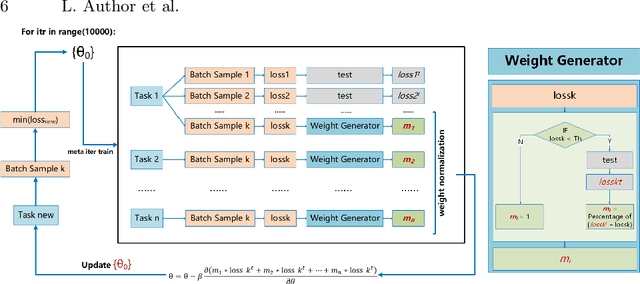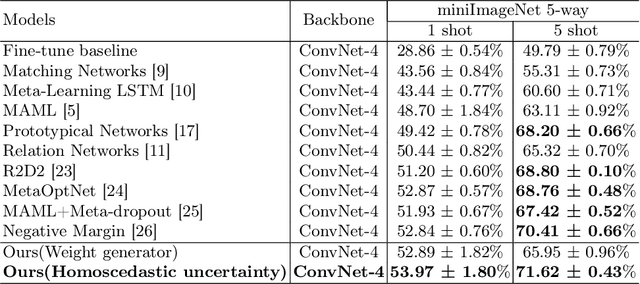Gradient-Based Meta-Learning Using Uncertainty to Weigh Loss for Few-Shot Learning
Paper and Code
Aug 17, 2022



Model-Agnostic Meta-Learning (MAML) is one of the most successful meta-learning techniques for few-shot learning. It uses gradient descent to learn commonalities between various tasks, enabling the model to learn the meta-initialization of its own parameters to quickly adapt to new tasks using a small amount of labeled training data. A key challenge to few-shot learning is task uncertainty. Although a strong prior can be obtained from meta-learning with a large number of tasks, a precision model of the new task cannot be guaranteed because the volume of the training dataset is normally too small. In this study, first,in the process of choosing initialization parameters, the new method is proposed for task-specific learner adaptively learn to select initialization parameters that minimize the loss of new tasks. Then, we propose two improved methods for the meta-loss part: Method 1 generates weights by comparing meta-loss differences to improve the accuracy when there are few classes, and Method 2 introduces the homoscedastic uncertainty of each task to weigh multiple losses based on the original gradient descent,as a way to enhance the generalization ability to novel classes while ensuring accuracy improvement. Compared with previous gradient-based meta-learning methods, our model achieves better performance in regression tasks and few-shot classification and improves the robustness of the model to the learning rate and query sets in the meta-test set.
 Add to Chrome
Add to Chrome Add to Firefox
Add to Firefox Add to Edge
Add to Edge